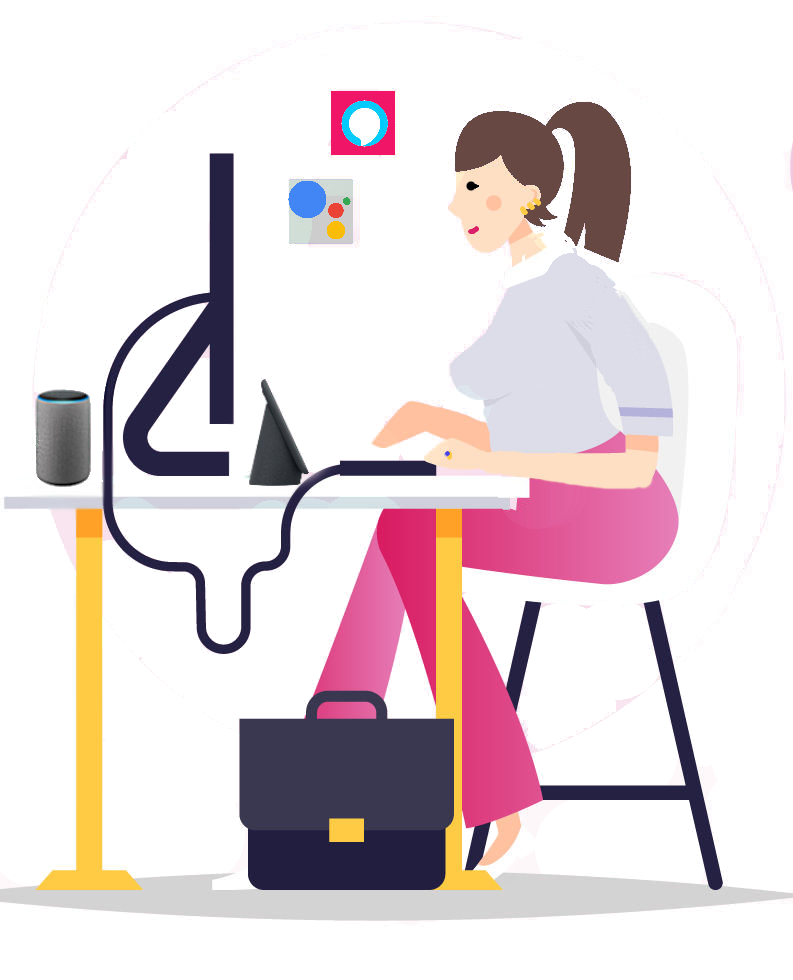Is Laziness Genius for Creative Types? Probably
I admit it. I think I might be lazy.
I love to sleep.
Sure, everyone likes to sleep, right? No, you don't understand. I loooooooooooove to sleep. It's one of my favorite things. Now, to most people, sleeping around 10 to 11 hours a day sounds indulgent, wasteful and lazy. Hear me out, though. Being lazy can actually be a tool writers can use to get better ideas. It's not just my opinion. It's scientific.
How the Mind Creates Creativity
Your brain has what is called a default mode network (DMN). This is the part of the brain that is used when you daydream or think about yourself. This network is also credited with the line of thought we call creativity.
Creativity is just connecting things. When you ask creative people how they did something, they feel a little guilty because they didn't really do it, they just saw something. It seemed obvious to them after a while. That's because they were able to connect experiences they've had and synthesize new things.
—Steve Jobs
the benefits of daydreaming
In a paper called "Robust Prediction of Individual Creative Ability from Brain Functional Connectivity," researchers found that the default mode network , along with its buddies the executive control network and the salience network, work together to come up with those brilliant ideas that make writers worth their pay.
Psychology Today sums it up this way, "For creativity, scientists hypothesize that the Big Three operate as a team: the default mode network generates ideas, the executive control network evaluates them, and the salience network helps to identify which ideas get passed along to the executive control network."
How to Hack Creativity
For these systems to work, your brain needs downtime. Time to rest and wander. "In making an argument for the necessity of mental downtime, we can now add an overwhelming amount of empirical evidence to intuition and anecdote," said writer Ferris Jabr in an article for Scientific American. "Why giving our brains a break now and then is so important has become increasingly clear in a diverse collection of new studies investigating: the habits of office workers and the daily routines of extraordinary musicians and athletes; the benefits of vacation, meditation and time spent in parks, gardens and other peaceful outdoor spaces; and how napping, unwinding while awake and perhaps the mere act of blinking can sharpen the mind."
how to boost creativity
Here's how to get started:
Meditate: Meditation has been found to shut off the "thinking" part of the brain so that the Big Three can go to work on creating new, interesting concepts. "One increasingly popular solution is mindfulness meditation," noted Emma Schootstra, Dirk Deichmann and Evgenia Dolgova in their article for the Harvard Business Review. "Google, Goldman Sachs, and Medtronic are among the many leading firms that have introduced meditation and other mindfulness practices to their employees. Executives at these and other companies say meditation is not only useful as a stress-reduction tool but can also enhance creativity, opening doors where once there seemed to be only a wall."
Sleep: One of the best times to come up with ideas is right before you go to sleep. This is because your active mind is shutting off. My frequent naps allows me to come up with a bunch of ideas. "The space and quiet that idleness provides is a necessary condition for standing back from life and seeing it whole, for making unexpected connections and waiting for the wild summer lightning strikes of inspiration—it is, paradoxically, necessary to getting any work done," Tim Kreider wrote in The New York Times.
Daydreaming: Give your mind permission to wander. Stare out the window or off into space and let go. You'll be amazed at the things you come up with. "Our brains need down time. Your quality of life will skyrocket as you flush hours of seeking out of your week. The majority of the interesting, exciting, novel stimuli you're getting in society are composed of empty calories anyway. So give yourself as much downtime as you can," advised writer Michael W. Taft in his article Downtime for the Stone Age Brain.










